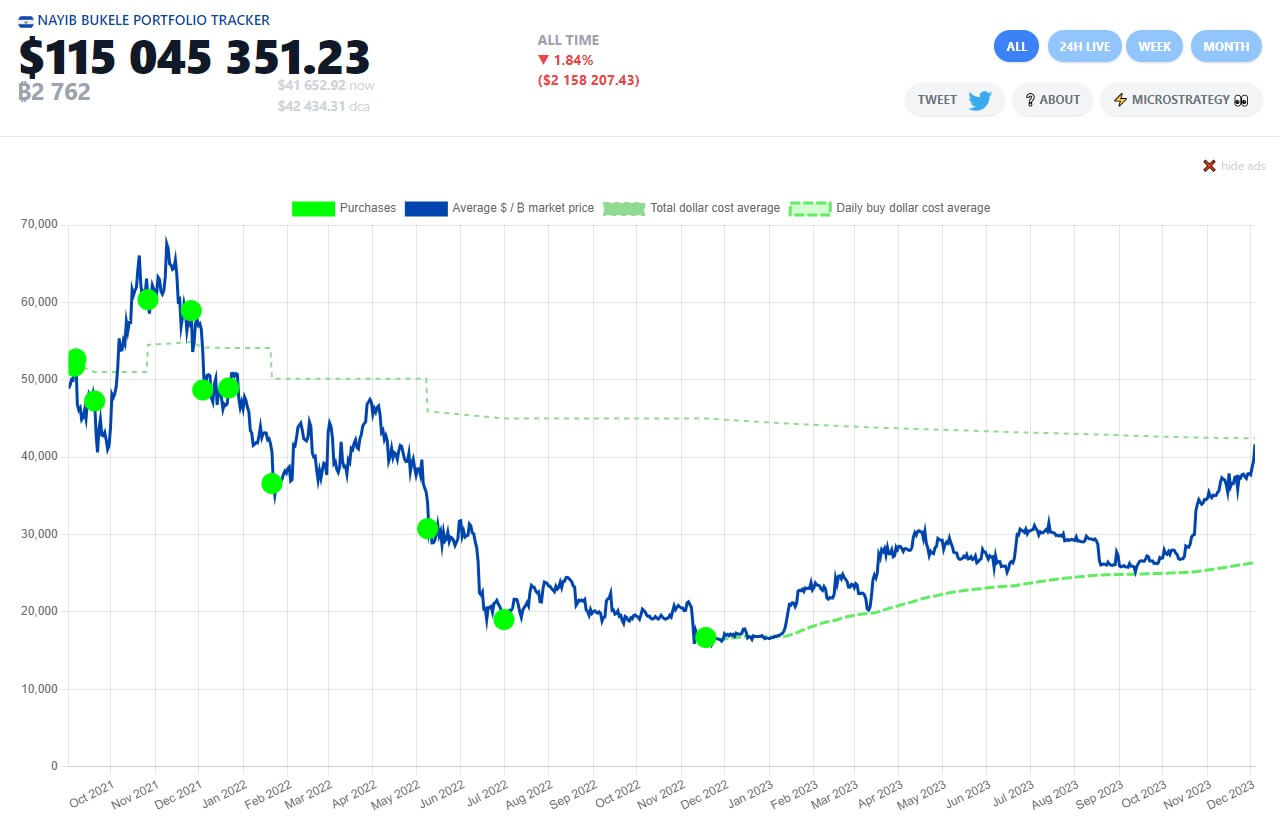El Salvador president Nayib Bukele, who not too long ago started a six-month go away from workplace to be able to give attention to his reelection marketing campaign, has said that El Salvador’s Bitcoin (BTC) funding has turned worthwhile resulting from Bitcoin’s latest surge previous $41,000.
Bukele wrote.
“El Salvador’s Bitcoin investments are within the black. With the present Bitcoin market worth, if we had been to promote our Bitcoin, we might not solely recuperate 100% of our funding but additionally make a revenue of $3,620,277.13 (as of this second).”
Nevertheless, knowledge from NayibTracker, a knowledge aggregator monitoring El Salvador’s Bitcoin holdings, contradicts Bukele’s assertion, exhibiting the Central American nation’s BTC holdings at an unrealized lack of $2.15 million.

Per the location, the nation’s common BTC buy worth is $42,434, whereas the highest cryptocurrency traded for $41,623 as of press time.
Nonetheless, the information marks a major turnaround for a rustic whose BTC holdings had recorded almost $20 million in unrealized losses in October amid the flagship asset’s spike to $35,000.
Over the weekend, BTC’s worth broke $41,000 amid continued market optimism surrounding a attainable approval for a spot exchange-traded fund (ETF) within the U.S.
El Salvador received’t promote
Bukele said that El Salvador has no intentions of promoting its BTC holdings, reaffirming a long-term technique no matter future worth fluctuations. He stated:
“We have now no intention of promoting; that has by no means been our goal. We’re totally conscious that the worth will proceed to fluctuate sooner or later, this doesn’t have an effect on our long-term technique.”
The Central American nation has emerged as probably the most pro-BTC jurisdictions on this planet because it made the flagship digital asset a authorized tender in 2021. Since then, a number of crypto corporations, together with Binance, and main trade stakeholders have touted the nation’s pro-crypto laws.
Nevertheless, El Salvador’s BTC transfer has attracted detractors whom Bukele described as “naysayers,” who’ve written “1000’s of articles and hit items that ridiculed [the country’s] supposed losses.”

